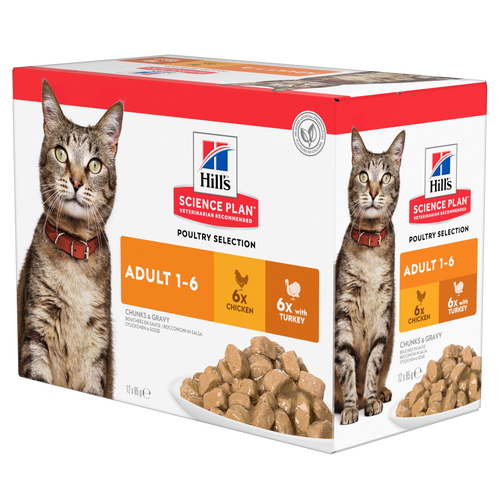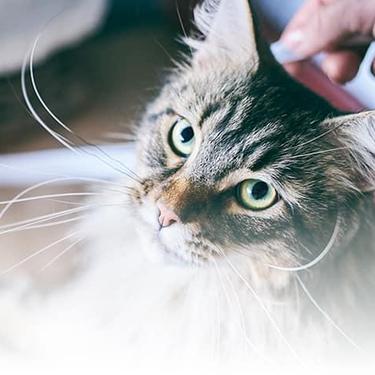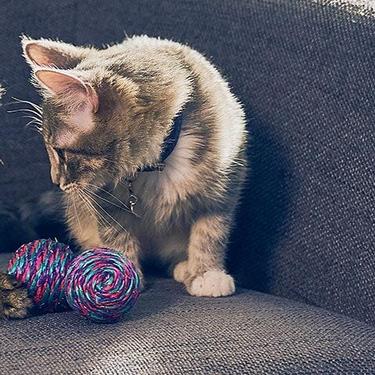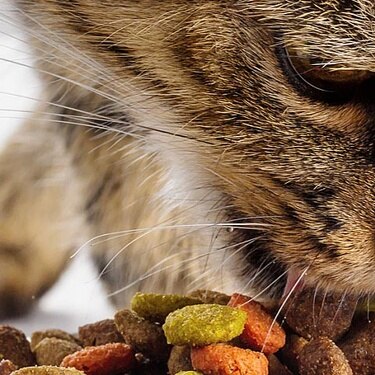
-
Find the right food for your petTake this quiz to see which food may be the best for your furry friend.Find the right food for your petTake this quiz to see which food may be the best for your furry friend.Featured products
 Puppy Food
Puppy FoodHill's Science Plan Puppy Multipack Wet Dog Food with Chicken & Beef are complete premium pet foods for growing puppies from weaning until 1 year old and for pregnant and nursing dogs. Your puppy will love these deliciously smooth and savoury minced loaves, formulated for balanced nutrition and overall health.
Shop Now Adult Wet Dog Food with Beef
Adult Wet Dog Food with BeefHill's Science Plan Adult Multipack Wet Dog Food with Chicken, Beef & Turkey are complete premium pet foods for adult dogs from 1 year. Your dog will love these deliciously smooth and savoury minced loaves, formulated for balanced nutrition and overall health.
Shop Now Mature Adult Dog Food
Mature Adult Dog FoodHill's Science Plan Mature Adult Multipack Wet Dog Food with Chicken & Beef are complete premium pet foods for mature adult dogs from 7 years. Your dog will love these deliciously smooth and savoury minced loaves, formulated to deliver the appropriate amount of energy to support the needs of adult dogs.
Shop NowFeatured products Adult Multipack Wet Cat Food with Beef, Ocean Fish & Chicken
Adult Multipack Wet Cat Food with Beef, Ocean Fish & ChickenTender chunks in gravy for cats, with high-quality protein to maintain lean muscle. With vitamin E and omega-3s & -6s for healthy skin and balanced minerals to support healthy vital organs.
Shop Now Mature Adult Wet Cat Food with Chicken
Mature Adult Wet Cat Food with Chicken
Tender chicken chunks in gravy for mature adult cats. Made with easy-to-digest ingredients, high-quality protein for lean muscle maintenance and antioxidant vitamins C+E for optimal health.
Shop Now Light Adult Multipack Wet Cat Food with Chicken & Ocean Fish
Light Adult Multipack Wet Cat Food with Chicken & Ocean FishTender chicken chunks in gravy for cats, with L-carnitine and fewer calories for ideal weight management. Packed with high-quality protein, omega-6s, and vitamin E for shiny fur and healthy skin.
Shop Now -
Dog
- Dog Tips & Articles
-
Health Category
- Weight
- Food & Environmental Sensitivities
- Urinary
- Digestive
- Joint
- Kidney
-
Life Stage
- Puppy Nutrition
- Adult Nutrition
- Senior Nutrition
Cat- Cat Tips & Articles
-
Health Category
- Weight
- Skin & Food Sensitivities
- Urinary
- Digestive
- Kidney
-
Life Stage
- Kitten Nutrition
- Adult Nutrition
Featured articles The Right Diet For Your Pet
The Right Diet For Your PetIn people, the right diet is very important. If you are eating the wrong way for your metabolism, activity level, age and lifestyle you could end up with health issues.
Read More Show some love with wet foods: a great choice for pets with health issues
Show some love with wet foods: a great choice for pets with health issuesShow some love with wet foods: a great choice for pets with health issues.
Read More The Incredible Science Behind Your Pet's Microbiome
The Incredible Science Behind Your Pet's MicrobiomeLearn what your pet's microbiome is, how it contributes to your pet's gut and overall health, and why nutrition is important in maintaining healthy microbiomes.
Read More -


Staying slim is proven to prolong life for both humans and animals, and has lots of health benefits. Many owners wonder, then: “How much should my cat weigh? What is a healthy weight for my cat?” Well, it depends on lots of things, such as age and breed. It’s not so much about exactly how much your cat weighs, as it is about monitoring weight and something we call body condition score (BCS).
Body condition score (BCS)
Cats don’t tend to vary in size anywhere near as much as dogs, but we do see some differences. You’ll often hear that the ‘average’ cat weighs four kilos, but these days there is a lot of variation. While four kilos would be obese for some cats, it would be underweight for the likes of an adult Maine Coon, for example.
Judging whether your cat is a healthy weight is best done by looking at their body condition score. BCS is scored out of 5 or 9, depending on which scale you use. Our scale is 1-5 where;
5 is obese. A thick layer of fat makes your cat’s ribs very difficult to find. Bonier areas like the knees are covered by a moderate to thin layer of fat.
4 is overweight. The ribs and bonier areas are difficult to feel with a thick layer of fat.
3 is ideal. You can easily feel your cat’s ribs, but there is a slight layer of fat covering them. Bony prominences also have just a slight layer of fat.
2 is underweight. Little fat is covering the ribs, and they are visible without having to touch your pet.
1 is very thin. There is no fat around your cat’s ribs, and they are visible to the eye. Bony prominences are also visible with no sign of fat.
Ask your vet if your cat is an ideal BCS and then you’ll know if their weight is also ideal. Once you get used to judging BCS, you’ll find that you do it subconsciously when you pet your cat. There may not be one ideal weight for cats, but monitoring weight is also important.


Tasty Tips
Why a healthy weight is so important for your cat
Monitoring weight, as well as BCS, is important throughout life. Weight gain and loss are both possible signs of disease and are sometimes the first thing you’ll notice to alert you to issues.
If you have a kitten, weighing every couple of weeks will tell you and your vet if your kitten is growing properly and at a healthy rate. Monthly weight checks through the rest of your cat’s life will help you spot trends in either direction before it gets out of hand.
Weight gain can easily happen after neutering or as your cat ages, and because it’s usually gradual, it can be difficult to spot if you’re not weighing your cat regularly. It’s much easier to prevent weight gain than lose weight once it’s on, so keeping on top of it and changing rations or food when necessary is the best way forward.
On the other hand, weight loss, as we said, can be an important warning sign of health issues such as kidney and heart disease, cancer or diabetes. Some diseases may be quite advanced by the time your cat is showing clinical signs, so spotting weight loss early on and getting help can, quite literally, be a life-saver.
The bottom line is, there isn’t one correct weight for all cats. Speak to your vet about the right weight and BCS for your cat and then do what you can to keep it that way. Keeping your cat slim will maximise their health and happiness and give you the longest time possible with your beautiful, furry friend.
Reviewed by Dr. Hein Meyer, DVM, PhD, Dipl-ECVIM-CA


One of our staff authors prepared this article for you
Related products

Tender chicken chunks in gravy for mature adult cats. Made with easy-to-digest ingredients, high-quality protein for lean muscle maintenance and antioxidant vitamins C+E for optimal health.

Tender chunks in gravy for cats, with high-quality protein to maintain lean muscle. With vitamin E and omega-3s & -6s for healthy skin and balanced minerals to support healthy vital organs.

Tender chicken chunks in gravy for cats, with L-carnitine and fewer calories for ideal weight management. Packed with high-quality protein, omega-6s, and vitamin E for shiny fur and healthy skin.

Related articles

There are three common ways to feed a cat. Each way has its advantages and disadvantages.

Learn how to make homemade cat treats that are healthy for your pet with this recipe from Hills Pet Nutrition.

Kittens grow a lot in their first year, so it is important to provide them with the proper nutrients early, so they grow up healthy and strong. Learn more.

From essential vitamins & minerals to different types of meat, learn what to look for when choosing the best cat food for your feline.

Put your cat on a diet without them knowing
Our low calorie formula helps you control your cat's weight. It's packed with high-quality protein for building lean muscles, and made with purposeful ingredients for a flavourful, nutritious meal. Clinically proven antioxidants, Vitamin C+E, help promote a healthy immune system.
Put your cat on a diet without them knowing
Our low calorie formula helps you control your cat's weight. It's packed with high-quality protein for building lean muscles, and made with purposeful ingredients for a flavourful, nutritious meal. Clinically proven antioxidants, Vitamin C+E, help promote a healthy immune system.

